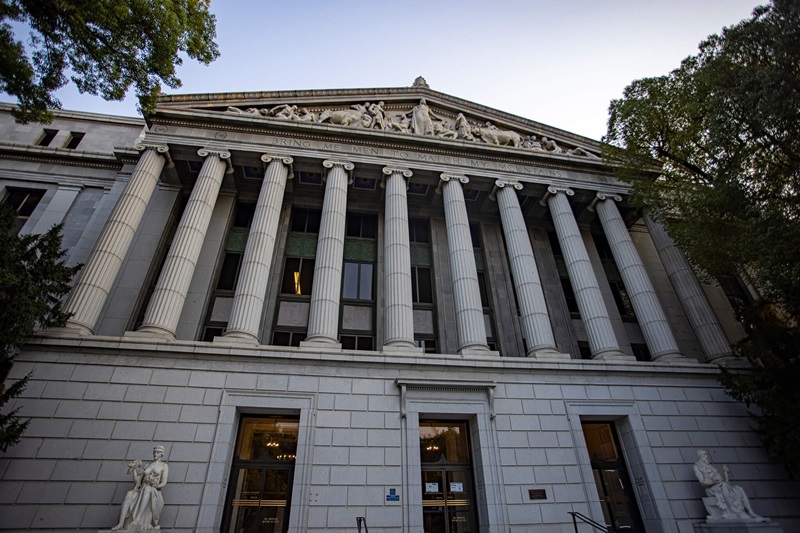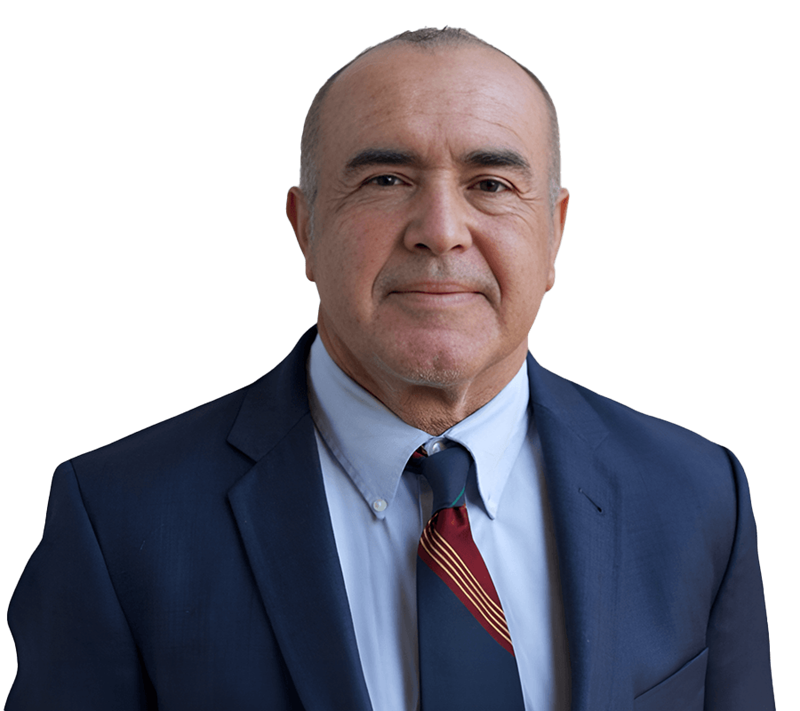
Appeals
Attorney Timothy D. McGonigle has a distinguished record of success in representing clients in appellate matters within California's state and federal courts. Operating from his office in Los Angeles, he handles appeals across Los Angeles County and throughout the state, boasting several reported decisions that encompass a wide range of litigation subjects.
CLICK HERE TO SEE IF YOU QUALIFY FOR COMPENSATION
THE WEIGHT OF “WHAT IF”
It’s one of the most haunting feelings a person can carry: the moment you realize the trial court got it wrong. Maybe evidence was mishandled, maybe the law was misapplied, or maybe your side of the story was never fully heard. And now you find yourself living with a result that feels unjust, wondering if it’s really the end of the road.
Late at night, the “what ifs” grow louder. What if the judge overlooked something crucial? What if my lawyer didn’t make the right arguments? What if the jury was swayed by evidence that never should have been admitted? Those doubts never quiet—they circle back in your thoughts at work, in the car, even during conversations with friends and family.
The truth is, most people don’t get appeals right. They underestimate how technical, specialized, and exacting the process is. Unlike trial work, appeals are about identifying legal errors, weaving them into persuasive arguments, and convincing appellate judges that justice wasn’t done the first time.
And here’s the deeper fear: What if I give up now and regret it forever? That quiet dread—of letting the system’s mistakes stand unchallenged—is what keeps so many people searching for answers. You’ve already lived through the pain of one loss. You know you can’t afford to wonder forever if it could have been different.
THE COST OF DOING NOTHING
Delaying an appeal can permanently forfeit your right to challenge a judgment. In California, most appeal deadlines fall within 30 to 60 days of the trial court’s order. Missing those deadlines means the judgment becomes final and enforceable.
It’s tempting to say, “Maybe I should just move on.” After all, appeals feel complicated, time is short, and the thought of starting another legal process can feel overwhelming. But the cost of doing nothing is heavy—and it only grows with time.
When you walk away from an appeal, you’re not just closing a case. You’re locking in a result that will ripple through your future for years. If it’s a civil matter, that could mean financial damages that will follow you, a business judgment that changes your company’s path, or a contractual ruling that binds you to terms you can’t live with. If it’s a criminal matter, it may mean years of freedom lost, a permanent record, or the weight of a conviction that alters the rest of your life.
Waiting doesn’t make these problems fade—it cements them. Deadlines in appellate law are strict, and once they pass, the chance to challenge the result disappears forever. The regret of missing that window is something many clients tell us is harder to live with than the loss itself.
And it’s not just about law. It’s about how this judgment shapes your family, your reputation, your opportunities. The longer you wait, the more people around you assume the matter is final, when in reality, the law still offers you a second chance.
WHAT YOU DON’T WANT
Most people who call us after a disappointing result share the same frustrations. They don’t want to go through another process that feels just as confusing as the first. They don’t want to be left in the dark, wondering if their appellate lawyer is actually doing anything. They don’t want to hear endless legal jargon that never translates into a clear plan.
And above all, they don’t want to make the same mistake twice—trusting the wrong lawyer with something this important. Appeals aren’t a place for guesswork or inexperience. They demand precision, strategy, and a deep understanding of how to persuade appellate judges.
But underneath those concerns is something deeper: what people truly want is to feel heard, to feel like the mistakes of the first trial can be corrected, and to know that this time, the system can deliver fairness. They want a lawyer they can trust, someone who will give them a roadmap and walk with them every step of the way.
THE RELIEF OF KNOWING IT’S DONE
Now imagine the moment when the appeal is complete—and you know you gave it everything you could. You’ve reviewed the errors, built the arguments, and stood your ground. And this time, the law listened.
You’re no longer living with the weight of unanswered “what ifs.” You’ve taken control of your story and fought for your rights. The result may be a new trial, a reversal, or a modification of the judgment—but more importantly, it’s the knowledge that you didn’t just let the system’s mistakes stand unchallenged.
For clients, that moment often feels like breathing again. Instead of reliving the frustration of the first verdict, you feel empowered knowing you acted decisively. You know your future wasn’t left to chance or tied forever to someone else’s error. You know that, win or lose, you fought for fairness and gave yourself the best possible chance to turn things around.
And that relief spreads. Your family sees it in you. Your business partners, your colleagues, your friends—all recognize the difference when you carry yourself with the confidence of someone who refused to settle for injustice.
This isn’t just about courtrooms. It’s about dignity, peace of mind, and reclaiming control.
CONSULTATION
NOT EVERY CASE IS RIGHT FOR APPEAL—AND THAT’S WHY WE LISTEN FIRST
Appeals are unique. Not every case is appealable, and not every issue is strong enough to succeed. That is why our process begins with a thorough consultation.
Here’s what you can expect:
We Listen First – You explain the trial outcome and your concerns.
You Ask Anything – From deadlines and procedures to costs and strategy, we provide clear answers.
We Decide Together – If your case has merit on appeal, we outline the path forward. If not, you leave with clarity on your options.
👉 Call today to schedule a confidential consultation. Even if we do not move forward together, you will leave with an informed understanding of your appellate rights. Mr. McGonigle's expertise extends to understanding the nuanced procedural differences between state and federal courts, as well as the specific criteria utilized in appellate review processes. From initiating the appeal process by notifying the court to crafting and submitting comprehensive appellate briefs, and when necessary, presenting persuasive oral arguments, Attorney McGonigle possesses the acumen and proficiency to navigate every facet of the appellate process with precision and skill.
CLICK HERE TO SEE IF YOU QUALIFY FOR COMPENSATION
FAQ
Q1: How long do I have to file an appeal in California?
A: Appellate deadlines are strict—often just 30 to 60 days from the judgment. Missing them usually ends your right to appeal.
Q2: What’s different about an appeal compared to a trial?
A: Trials are about presenting evidence; appeals are about identifying legal errors and showing how they affected the outcome. It’s a very technical process.
Q3: Can new evidence be introduced on appeal?
A: Generally, no. Appeals focus on what happened in the trial court, not new facts. The goal is to show mistakes in applying the law.
Q4: How long does an appeal take?
A: Many appeals in California take a year or more. It’s a slow, deliberate process—but one that can dramatically change the result.
Q5: What types of cases can be appealed?
A: Both civil and criminal cases can be appealed, as long as there are legal errors to challenge.
Q6: Do appeals always result in reversals?
A: Not always. Some appeals lead to new trials, some modify judgments, and others affirm the original result. But having experienced appellate counsel dramatically improves your chances.
Q7: How expensive is an appeal?
A: Costs depend on complexity and record size, but appellate work is often more predictable than trial litigation. We’ll give you clarity on what to expect.
Q8: Why do I need a lawyer who focuses on appeals?
A: Appellate law is its own specialty. Success requires different skills than trial practice—analytical precision, persuasive writing, and oral advocacy before appellate judges.
Q9: What happens if I lose the appeal?
A: There may still be options, including higher-level appeals, petitions for rehearing, or settlement opportunities. We’ll guide you through every step.
To schedule an appointment with one of our attorneys, please call us at 1-800-713-5260 or by completing our intake form.



